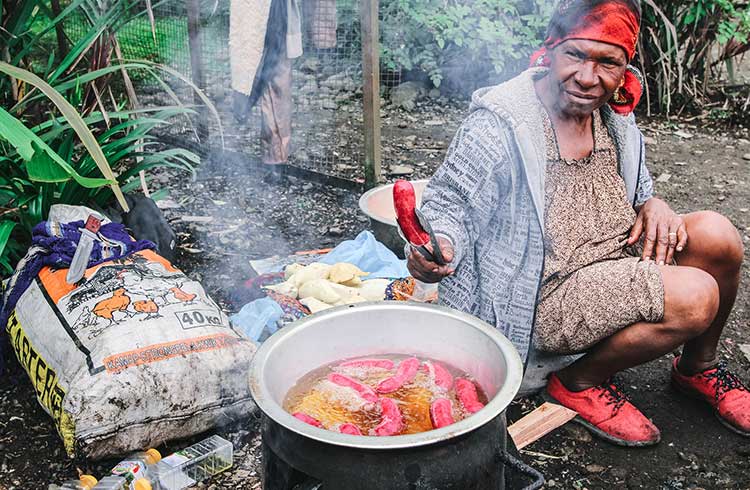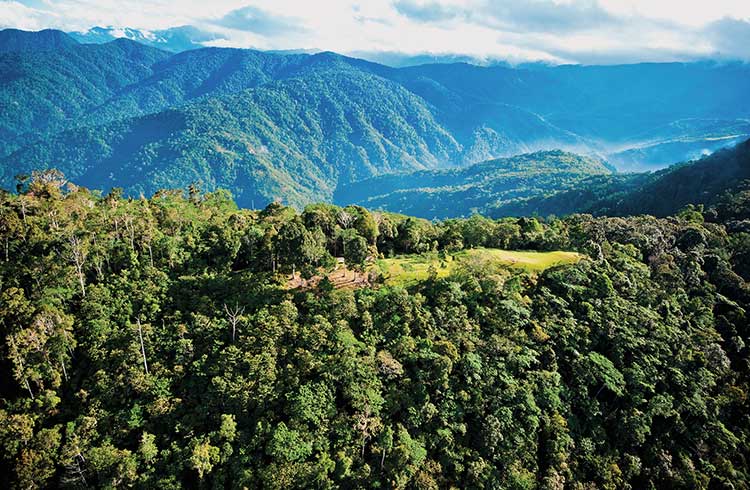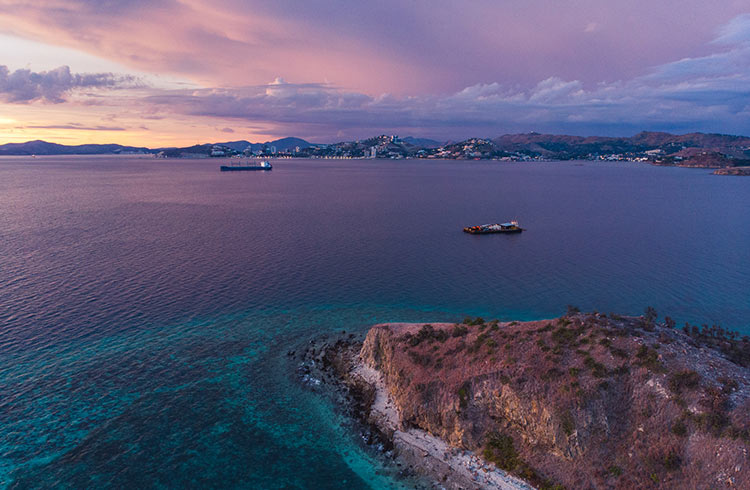How to Stay Healthy While Traveling in Papua New Guinea
Coronavirus (COVID-19) and travel: The situation around the world is changing dramatically. Various governments have changed their travel warnings to restrict travel during this time. To understand how this may impact cover under your policy, please go to our FAQs and select your country of residence.
For the latest travel warnings and alerts around the world, read about lockdowns and border restrictions.
Medical facilities in Papua New Guinea are pretty basic and tropical illnesses are common. Find out how to avoid getting sick on your trip with these tips.
 Photo © Getty Images/Jen Seiser
Photo © Getty Images/Jen Seiser
Medical facilities in Papua New Guinea
The capital, Port Moresby and the larger towns have hospitals. While these are adequate for routine procedures and most emergencies, equipment failure and sudden shortages of common medications can lead to issues.
Even some treatments and procedures, including X-rays, may be temporarily unavailable. Smaller regional centers have health clinics and remote centers only have first aid posts.
Doctors and hospitals often expect immediate cash payment for medical services.
Pharmacies are often small and inadequately stocked. They are found only in urban centres and at missionary clinics.
Apart from disease, no matter how fit or healthy you are, accidents happen and medical evacuation to Australia is often the only option. Medical evacuation can cost between several thousand dollars to AU $80K, depending on the circumstances.
Most common health issues in Papua New Guinea
The most common travel illnesses in PNG are tropical skin infections, malaria and stomach upsets – such as vomiting or diarrhea.
Infectious diseases including HIV, hepatitis B, tuberculosis and tetanus are a problem here, but, if you are vaccinated and take necessary precautions to avoid it, you are unlikely to be affected.
What vaccinations do you need for Papua New Guinea?
Before you to travel to PNG, visit a doctor or travel clinic for advice on disease prevention overseas. They will provide information that is right for you on which immunisations and booster shots you require of vaccinations you received as a child.
Your doctor will also provide advice on specific medication you may need to take prior to, during and after travel to PNG.
The CDC and WHO recommend these vaccinations for travelers to Papua New Guinea:
- Influenza
- Hepatitis A and B
- Chickenpox
- Shingles
- Typhoid
- Japanese encephalitis
- Rabies (speak to your doctor about rabies in particular)
- Meningitis
- Polio
- Measles, mumps and rubella (MMR)
- Tdap (tetanus, diphtheria and pertussis)
- Pneumonia.
Beware of tropical infections
Tropical skin infections are common in PNG. Minor nicks or scratches on the skin can quickly become infected if you do not cover them up or clean them properly.
In the humid tropics, standard antiseptic creams are virtually useless, and immediate application of antibiotic cream or antibiotic powder is recommended.
When visiting remote villages, you'll inevitably come across both adults and children with infected skin wounds.
Diving on tropical reefs poses the danger of a scratch or two, and when you get cut by coral, infections are inevitable and coral poisoning can be serious.
If standard medication is unavailable or doesn't seem to be working, a topical application of pounded paw-paw seeds (fresh or dry) gets rid of necrosed tissue and facilitates healing.
Malaria
Malaria is common throughout PNG. Malaria is an infectious disease caused by protozoa of the genus Plasmodium. The single-celled parasite can only survive in the salivary glands of the female Anopheles mosquito, or in the human liver and bloodstream. It is passed on to humans by the saliva of the mosquito when it bites you.
The most effective remedy is to avoid being bitten by a mosquito. Apply insect repellent often, sleep under a mosquito net, and cover up with long-sleeved clothing at dawn and dusk, or when hiking in the jungle.
You may want to consider taking anti-malaria medication, but speak to your doctor about what's right for you.
In the past, the drug chloroquine, a derivative of quinine, was effective in the prevention and treatment of malaria. Now, the two most common strains of malaria in PNG (P. falciparum and P. vivax) have developed a degree of resistance to chloroquine. Although this means that the drug is no longer as effective as it once was in prophylaxis and treatment of malaria, it's still recommended.
The common antibiotics doxycycline and vibramycin have been shown to be effective as malaria prophylactics. Taken daily, these have the added advantage of preventing bacterial infections.
Before traveling to PNG, consult your doctor or visit a traveler's medical center to obtain the best advice regarding malaria prophylaxis.
Food and water poisoning
Abdominal upsets affect some travelers to PNG. This is a common result from drinking dirty water.
Dirty water carries giardia, shigella, cholera and typhoid – so don't drink untreated water straight from streams while trekking. Pack water purification tablets and a water purification bottle, like Grayl.
In Port Moresby and most of the large towns, locals get by drinking the town water from the tap without falling ill. When trekking, only drink purified water that has been boiled or treated by purification tablets.
In the villages, the water is usually drawn from underground springs and is safe – unless polluted by stormwater. Ask your accommodation if the water is safe to drink before you do so, just in case.
Travelers prone to diarrhea are advised to carry medications such as Lomotil or Imodium.
Village food is unlikely to cause diarrhea symptoms, as the produce is eaten while fresh and cooked by boiling or baking under hot stones.
Get a travel insurance quote for Papua New Guinea
You can buy at home or while traveling, and claim online from anywhere in the world. With 150+ adventure activities covered and 24/7 emergency assistance.
Related articles
Simple and flexible travel insurance
You can buy at home or while traveling, and claim online from anywhere in the world. With 150+ adventure activities covered and 24/7 emergency assistance.
Get a quote

No Comments